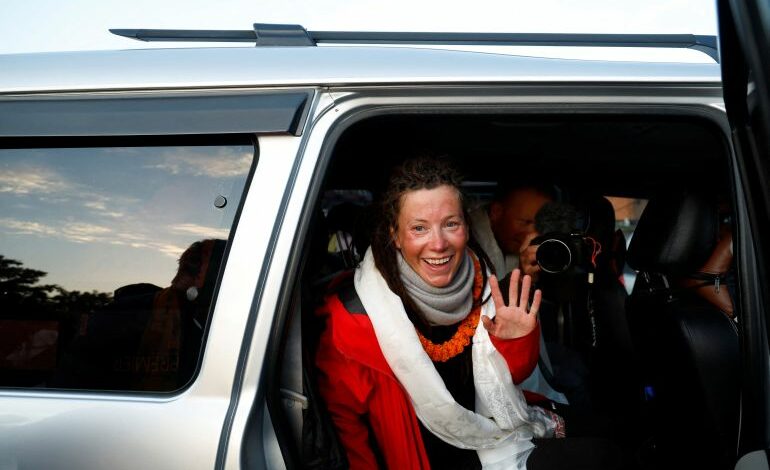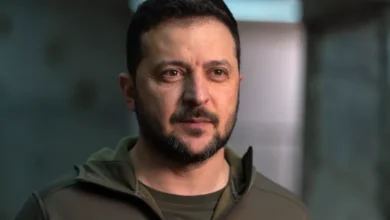Why Norway’s record-breaking climber is facing backlash after Sherpa death

The Norwegian climber, who recently became the fastest person to summit the world’s 14 highest peaks, was accused of walking over a dying Sherpa to set the record.
Harila was also criticised for celebrating the world record at the base camp that evening.The Norwegian climber, who recently became the fastest person to summit the world’s 14 highest peaks, was accused of walking over a dying Sherpa to set the record.
Harila was also criticised for celebrating the world record at the base camp that evening.Harila said she, her cameraman and two others spent “1.5 hours in the bottleneck trying to pull him up” but to no avail.
What have the climbers said?
Her cameraman, identified only as Gabriel, was among those who stayed with Hassan, sharing his oxygen and hot water.
“Considering the amount of people that stayed behind and had turned around, I believed Hassan would be getting all the help he could, and that he would be able to get down,” Harila said, adding that Gabriel left after an hour when he needed “to get more oxygen for his own safety”.
When he caught up with Harila, “we understood that he [Hassan] might not make it down” and that “it was heartbreaking”.On their descent, they discovered that Hassan had passed away. She added that her team of four “was in no shape to carry his body down” safely, noting it would have required at least six people.Harila said Hassan was “not properly equipped for the climb”, wearing neither a down suit nor gloves.
Austrian climber Philip Flamig told Austria’s Standard newspaper that Hassan was being treated by one person while everyone else continued on towards the summit.
His climbing partner, Wilhelm Steindl, said, “Such a thing would be unthinkable in the Alps. He was treated like a second-class human being.”
“If he had been a Westerner, he would have been rescued immediately,” he added. “No one felt responsible for him. What happened there is a disgrace. A living human was left lying so that records could be set.”
After visiting the sherpa’s family, Steindl said Hassan had taken the job of rope fixer to pay for his diabetic mother’s medical bills despite a lack of experience.










